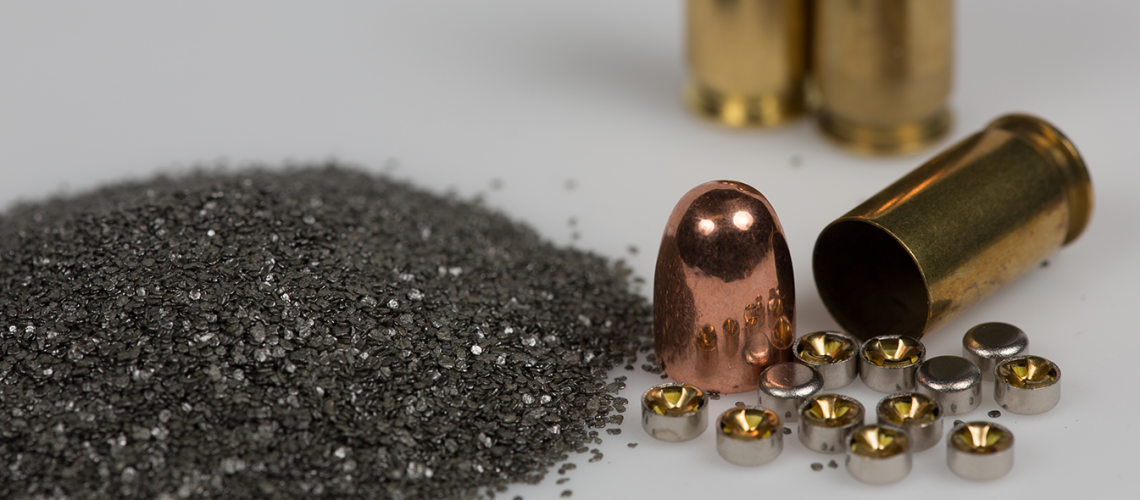Some people get into reloading thinking they can make ammo at a much lower cost.
Some people get into reloading to make better ammo, tuned for a certain rifle or purpose.
While both CAN be true, neither is guaranteed by any means. If you do choose to pursue reloading, you will probably go out and shoot a lot more. Your range trips won’t just be for practicing – they will now involve testing and research.

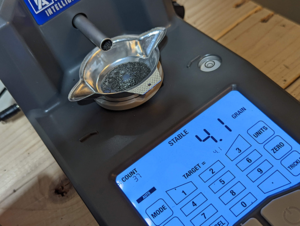 Upfront cost
Upfront cost
There are a lot of tools you need to get started. Reloading manuals, press, components, precision measuring tools, and brass prep tools. This doesn’t even consider the “consumables” like gunpowder. If you are getting into reloading to save money on ammunition, make sure you take the tooling cost into account.
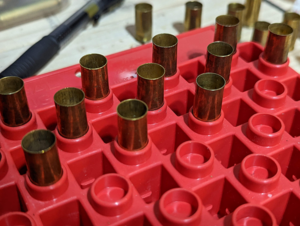 Safety
Safety
Reloading can be dangerous. The supplies can be an extreme fire hazard. Improper measurement or lack of attention to detail can result in blowing up a gun barrel or blowing off your hand. Bad reloading practices have killed and injured people. Proper test methods, conservative loading, and standardized safety practices can turn what could be a very dangerous activity into something that is safe, predictable, and reliable. If you don’t have a mind to learn and practice safe reloading, then this hobby is not for you.

Is this the sort of project you like?
If you are mechanically inclined, love to tinker, and don’t mind working on your own car, loading ammunition is probably right up your alley. If you “just want it to work” and don’t want to worry about tedious variables, testing, and measuring, reloading is probably not going to be an enjoyable pursuit.
Supply
Some people get into reloading to avoid ammunition supply issues. While you can “scale up” effectively, the truth is that instead of trying to find one item, a loaded cartridge, you now have to find at least 4 items: bullets, primers, powder, and brass.
Unless you’re loading a very unusual cartridge, brass is the easiest thing to source. Pick up your empties at the range, help your friends pick up their empties, buy bulk brass from a local range, or even volunteer to help clean up at a local range in exchange for brass.

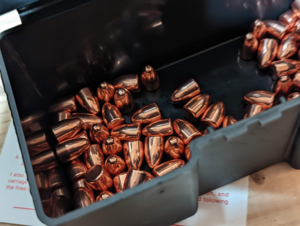 Bullets are not too difficult to find, especially for plinking ammo. If you’re looking for a specific hunting or match bullet, it can be a lot harder. You can order them online, but it’s worth hunting for that free shipping coupon code—because bullets are heavy and expensive to ship.
Bullets are not too difficult to find, especially for plinking ammo. If you’re looking for a specific hunting or match bullet, it can be a lot harder. You can order them online, but it’s worth hunting for that free shipping coupon code—because bullets are heavy and expensive to ship.
Powder and primers are the most difficult items to acquire. In times of high demand, a lot of the supply goes to factories making complete ammunition for retail.
Additionally, these items are considered hazardous materials. If you’re going to buy online, you will have to wait on ground shipping (as you generally cannot ship by air) and you will have to pay an additional HazMat fee. This often ruins the economics of the “better deal” you found online. Having a local store where you can buy powder and primers is important. This alone could be a critical part of the “Should I start reloading?” decision. If you invest in all the tools and learning needed to get started but don’t have a source for powder and primer, the whole operation will be at a standstill.
A dedicated space
There are some people who set up a reloading station and then put everything away after each session, but most reloaders have a dedicated “bench”, nook, or workstation where they can leave tools and supplies set up and properly configured. Because reloading requires a lot of small components, some proactive thinking about “how am I going to keep everything organized” can go a long way.
Cartridge selection
The first caliber you start to reload should be what you shoot the most, or what you are currently spending the most on purchasing. This can help make the economics make the most sense, but it also means you are more likely to follow through on the testing, load development, and everything else that comes with the process.
Community
Whether in person or online, find others who are reloading the same calibers. Sometimes this is a coach or mentor relationship—and sometimes it’s a reloader who is at your own level. Either way, it’s helpful to have someone else to learn from, discuss load data, and even share supplies.

Are you willing to learn the process?
Do you want to rush to the end result of having more ammo in your hands? Or are you actually interested in learning the skills needed to develop a load and build ammunition to be safe and reliable? One of the most common mistakes new loaders make is taking the shortcut of using someone else’s “recipe” found on an internet forum.
Not only does this shortchange the process of learning how to develop a load for yourself, it can be very dangerous—that “recipe” may be great for a friend’s rifle, but can create dangerous pressure levels in your gun.
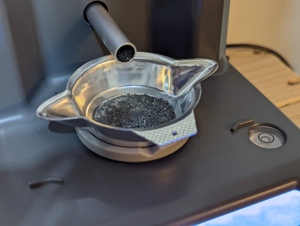 Set Goals
Set Goals
Like most things, the process works best if you set goals. “Learning about reloading” is a theme, but it is not a goal. “Develop a 9mm practice load and build 200 rounds” or “develop an accurate and effective hunting load for my 270 Winchester before deer season” are examples of great reloading goals that can keep you motivated while continuing to learn. If you can’t think of at least a couple of reloading goals, you should probably consider your decision a bit more carefully before getting into the practice.
Have fun!
If you enjoy anything DIY, and you have the time, space, and desire to learn, handloading can be a fun and interesting hobby. Even going to the range and shooting is a bit more fun when you’ve assembled the ammunition on your own. Effective reloaders can custom-tune ammunition to be more accurate in their rifles or can benefit from the sustenance of “I have all the supplies and knowledge to build up more ammunition when I need it”. While there can be a lot of costs to loading your own ammunition, there can also be a lot of benefits. Just make sure to stay safe, and have fun!
